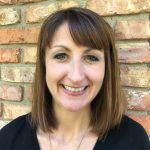Fourth generation farmer Trey Hill can’t wait to get lawmakers from D.C. to jump in the soil pit with him.
“I think it will be fun and I think we have a lot to offer as agriculturists, as farmers,” Hill said. “I think having the farmer actually be the voice, being transparent, opening up his location to folks provides a lot more transparency, loyalty, genuineness, all those things.”
Hill’s Maryland Eastern Shore farm is Bayer’s first U.S. ForwardFarming location. Through the ForwardFarming program, legislators and NGOs alike will have the opportunity to check out the commercial corn, wheat, and soybean production farming at Harborview Farms as well as Hill’s dedicated soil health practices.
Hill, who holds a degree in Farm Management and Economics from Purdue University, is committed to improving agricultural sustainability. In fact, he says he is really an environmentalist.
“The optimist in me says well if we need to change the way we farm, how do we go about doing it or better yet let’s talk about economics, how do we get funding for these programs how do we take the environmental community and embrace their ideas and be able to implement on the farm?” Hill said. “Well, we need to collaborate in order to go to the state and get funding.”
A great example of this collaboration Hill says is to look at the Maryland cover crop program. His county alone has the highest adoption rate with 80 percent of the county planting cover crops, and it’s helped having the environmental community’s buy-in.
“In agriculture that is what we need. I’ve joined environmental groups and they have invited me to be on the boards of them,” Hill said. “They want farmer involvement and they crave it, but farmers, as a whole, don’t join these groups.”
While most may consider farmers and environmentalists arch enemies, Hill said it was his father, Herman, who reached across the aisle to work with environmental groups after an outbreak issue in the Chesapeake Bay 25 years ago.
Now Hill, who oversees the family’s owned and rented 10,000 acres, admits he probably attends more environmental meetings than farming ones. In addition to participating in the state’s cover crop program, his farm has been working with Soil Health Partnership on experiments, and with the University of Maryland to do research on things like water holding capacity and nitrate leeching in real time with the USDA.
“This is exciting stuff. This is what makes farming fun,” Hill said. “This is what I am — I’m kind of a soil geek.”
But that’s also something many of the urban landowners Hill rents from like to hear as they trust him to care for their land.
“I think a big part of it for me hasn’t just been the social aspect or environmental aspect of it, but a lot of it has been the economics,” Hill said. “Where I think that by differentiating myself and becoming a soil health person and making sure the soils are cared for even if it cost me a little money from a business perspective from future logistics, future acquisition of land I’m hoping that gives me a little competitive advantage.”
And Hill’s efforts are working. The Chesapeake Bay is getting cleaner.
His efforts are also gaining national attention. Hill was hailed as one of 11 Champions of Change at the White House in 2015 for his “sustainable and climate-smart agriculture.”
But for Hill, the vigorous soil health practices he has implemented are not only helping the environment, they’re necessary for the success of his operation.
“It’s not just altruistic,” Hill said. “I need to do this for the future of the farm and for the future success of the farm.”



